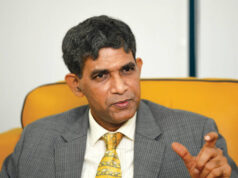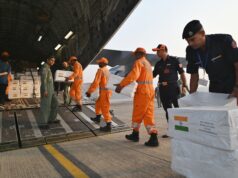AUG 3- The killing fields of Afghanistan have again taken centre-stage. India has warned its ambassador to Kabul, Amar Sinha, of a plot by Pakistan-based bombers to assassinate him, and has recommended that he not leave home without a bullet-proof jacket nor travel in a convoy of less than three armoured Land Cruisers.
The warning of the specific threat to the ambassador’s life is based on communication intercepts by New Delhi.


Following the intercepts, there have been a slew of visits to Afghanistan. Deputy National Security Adviser Nehchal Sandhu, a former Director of the Intelligence Bureau, was in Afghanistan recently and met senior Afghan national security officials,
“It was a specific alert. A team of security officials was sent to Afghanistan for a security review and it has made some recommendations. Clearly the aim is to pin down our top diplomat so we back off from our work,” a senior official told Mail Today.
The team, led by Malay Sinha, a police official in charge of security functions in the Foreign Office, comprised officials from the Research and Analysis Wing, Intelligence Bureau and Indo-Tibetan Border Police (ITBP) that has commandos deployed to guard the Indian mission in Kabul besides its consulates in Kandahar, Heart, Jalalabad, and Mazar-e-Sharif.
Officials say that Sinha was called to Delhi for consultations and met senior officials, including Foreign Secretary Sujata Singh.
The recommendations include making it mandatory for the envoy to wear a bullet-proof jacket at all times when he goes out, not to get out of the car till it is in a security-cleared spot, to ensure that he only travels in a convoy of armoured vehicles always equipped with a jammer, and not to disclose the movements of the convoy to staffers till the last moment.
It has been recommended that his armoured Land Cruisers travel in a convoy of at least three vehicles and that the vehicle carrying the ambassador be shuffled within the convoy with a decoy vehicle.
While the security team is in the process of compiling its report, Indian officials have sensitised Afghan officials on the threat and the security of the Indian mission has been beefed up with more permanent security posts. While the outer cordon of the mission and security is provided by the Afghan police, the inner cordon and the close proximity team comprises ITBP commandos.
The input comes at a juncture when India is in the process of providing fresh assistance of $100 million to Kabul in addition to the $2 billion it spent on reconstruction efforts in Afghanistan that won the country enormous goodwill. The envoy, a diplomat with a distinguished career, was handpicked for his economic diplomacy skills. He has spent barely a month in Kabul. Diplomatic sources say the plan to attack the Indian diplomat is aimed at putting India’s strategic outreach in Afghanistan on the backfoot.
“Pakistan has always sought to limit India’s activities in Afghanistan and for this purpose has used a number of instruments, including an attempt to circumscribe the activities of Indian representatives, including Indian personnel involved in assistance projects,” said Mr Vivek Katju, India’s former ambassador to Afghanistan. “There is a valid reason for concluding the involvement of Pakistani state actors in violent attacks on Indian interests in Afghanistan, including our embassy,” he added.
The Haqqani group, based in eastern Afghanistan and the Pakistani region of Waziristan, has been blamed by the Afghan, US and Indian governments for attacks on Kabul in the past three years against the Indian embassy, government ministries and hotels frequented by foreign diplomats and aid workers.
Pakistan’s ISI has been directly linked to the July 2008 bombing of the Indian embassy that killed 54 people, including India’s defence attache and a political counselor; Afghanistan’s former Afghan intelligence director, Amrullah Saleh, had gone on record to confirm this.
Diplomatic sources say ISI officers have scuttled CIA efforts to kill or capture Haqqani network leaders by leaking details of the planned raids,
The role of the ISI in attacks on the Indian mission was corroborated by Mike Waltz, who worked in the US vice-president’s office while George Bush was still President. “Through information and a series of events (not to mention preceding intelligence intercepts) it became pretty clear the Pakistanis were behind the (Jalaluddin) Haqqani network, which was behind the bombing,” he had said. He then concluded, in a BBC documentary: “The question was how high in the Pakistani state this went. And the answer was pretty high.”
The security situation in Afghanistan has been spiraling out of control in the run-up to 2014, when US-led forces are going to exit Afghanistan. The Taliban have been mounting deadly attacks and India will continue to be a soft target with Pakistan professing friendship on one hand and planning violent attacks against Indian diplomats on the other.
While India has been hit at will in Kabul, it has patiently played a diplomatic game of goodwill hunting even as its men are hunted. While beefing up the security of diplomats is fine, if New Delhi is looking for long-term strategic objectives in Afghanistan it will have to seek answers from Pakistan.
INDIA TODAY










